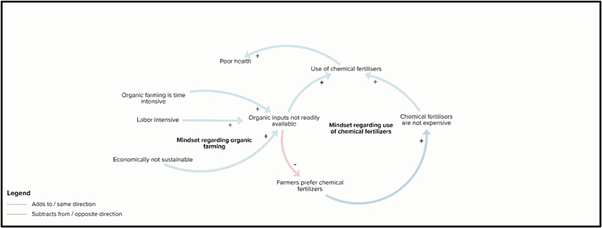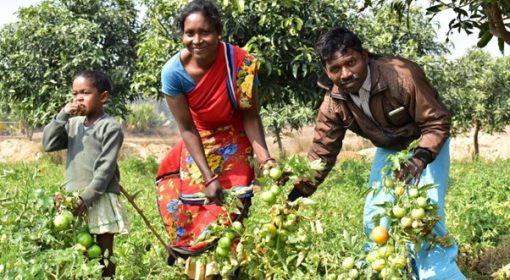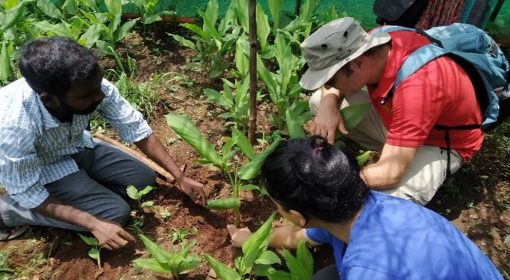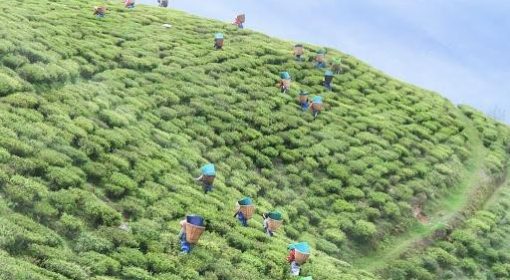By Meghna Mukherjee (MetaMeta Research) and Vinitika Lal (PRADAN)
 Mental Models, the basis of reasoning and decision making, is a widely accepted theory in the cognitive science and psychology literature. The notion of a mental model was originally postulated by the psychologist Kenneth Craik (1943) who proposed that people carry in their minds a small-scale model of how the world works. These models are used to anticipate events, reason, form explanations and react based on their experiences, perceptions, and understanding of the world. Numerous researchers have studied the influence of mental models on developing these external realities to interact with the world. However, such realities are unique to each individual.
Mental Models, the basis of reasoning and decision making, is a widely accepted theory in the cognitive science and psychology literature. The notion of a mental model was originally postulated by the psychologist Kenneth Craik (1943) who proposed that people carry in their minds a small-scale model of how the world works. These models are used to anticipate events, reason, form explanations and react based on their experiences, perceptions, and understanding of the world. Numerous researchers have studied the influence of mental models on developing these external realities to interact with the world. However, such realities are unique to each individual.
Development practitioners in the field of Natural resource management have tinkered with the idea of studying mental models to reach a common vision. They believe that identifying and sharing a common understanding amongst different stakeholders is important to enhance the collective decision making process.
Understanding mental models is an important component of systems thinking (understanding of a system by examining the linkages and interactions between the elements that comprise the whole of the system) as it helps in understanding that each actor has its own unique perception of the situation. Researchers interested in systems thinking use the mental model as a tool to better understand similarities and differences between stakeholders’ understandings of an issue and integrate different perspectives to improve the overall insights regarding the system.
Mental Model in Regenerative farming
Regenerative agricultural practices are being promoted to revive the natural environment. There has been a push by the Government of India to transition towards regenerative agriculture. Different policies and practices have been implemented to achieve this goal. Despite the push, the uptake has been fairly low. In order to understand the reason, it is important to understand the mindset of the farmers who are the main actors in this system. Figure 1 shows a causal loop diagram which explains the broad perception of farmers in Jharkhand and Madhya Pradesh state of India. It is clear that two different mindsets cropped up during the initial round of discussions with the farmers.
Using chemical fertilizers: The farmers were aware that the use of chemical fertilizers causes reduced levels of resilience in the body and overall deteriorates the health of the family. Since organic inputs are not easily available in the market, they continue using the chemical fertilizers. Also, the chemical fertilizers available in the market are very reasonably priced compared to organic fertilizers. The government has put a subsidy on the fertilizers which makes inputs like Urea and DAP less expensive. This incentivises the farmer to keep using the chemical fertilizers. The fact that the use of chemical fertilizers has a good impact on yield favors the argument even though they understand that health gets adversely impacted.
Mindset regarding organic farming: The fact that organic inputs are not readily available does not help in motivating people to transition to regenerative farming. Additionally, there is a bias against regenerative farming as farmers feel that organic farming is time and labor intensive. Since the farmers have to make the fertilizers and pesticides themselves, they have to invest a lot of time in procurement as well as in making the product. They also feel that it is not economically sustainable as the costs are higher than the income. They are of the opinion that the yield from using organic inputs are lesser than what they get from chemical fertilizers.

Where do we go from here?
Through analyses of mental models, the objective is to understand where the bottleneck is, the weakest link in the chain which when addressed leads to the maximum change. Unless and until there is a thorough understanding of the mental models which drive visible behaviour, stakeholders, despite good intentions, will continue to make surface level actions which of course will not demonstrate lasting change and maintain the status quo.




